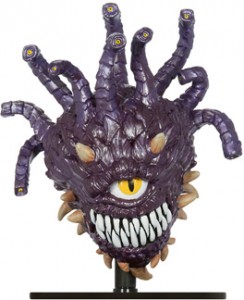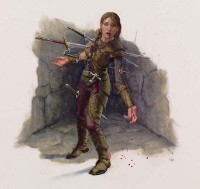On Friday we comb through our extensive archives to find an older article that we feel deserves another look. From March 7, 2009, Dungeon’s Master once again presents: Confessions of a Gamer.
Are you proud to be a gamer? Or do you hide the fact that once a week you play Dungeons & Dragons? I’m 34 years old, I’m a gamer and I’m proud to admit it.
I’ve been playing RPGs since I was 10, so 24 years now. And during that time I’ve met many different types of gamers. Most, like me, are proud to be gamers. Others are what I like to call “in the closet gamers.” They loved to play D&D, but would die a slow and painful social death if anyone outside of our immediate gaming group learned this terrible secret.
I’m sure this will not come as a shock to anyone reading this blog, but when I was in high school I was a huge nerd. In fact, I’m still a pretty big nerd. As a teenager, I was not part of the popular crowd and I wasn’t invited to parties. But I had a solid group of friends and one of the hobbies we shared was D&D. Every weekend, while the “cool kids” were getting drunk and partying, we were enjoying a night of role-playing games. And as lame as that sounds, I’m not ashamed to admit it.

